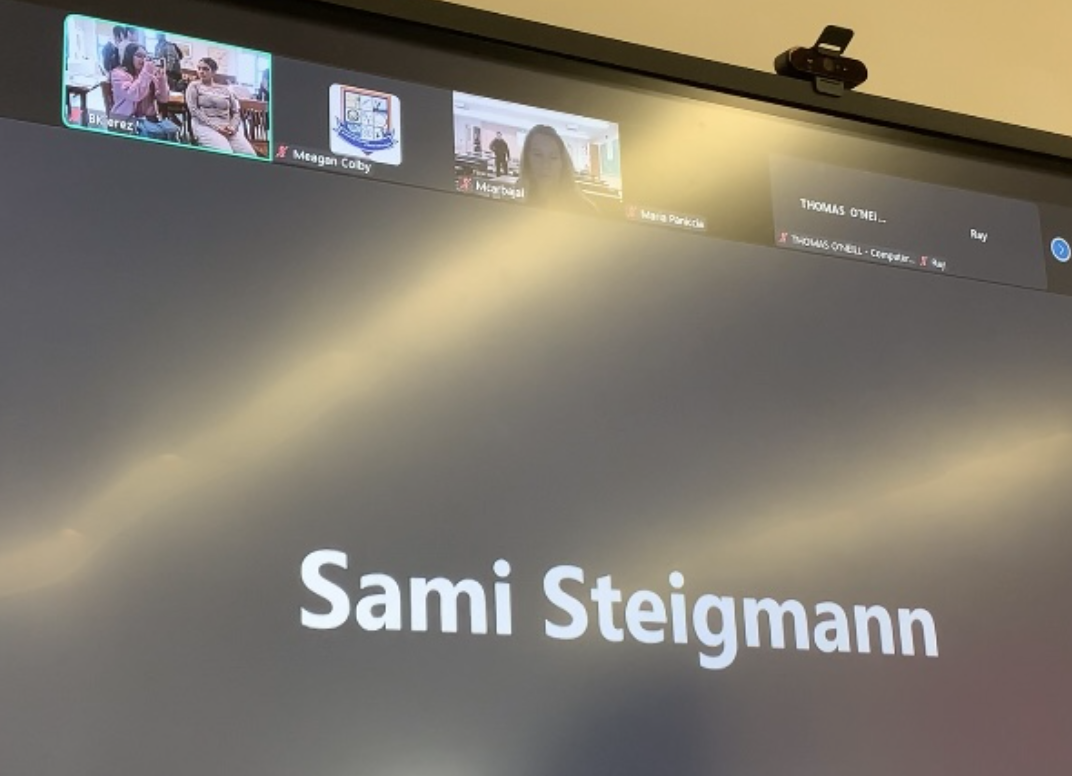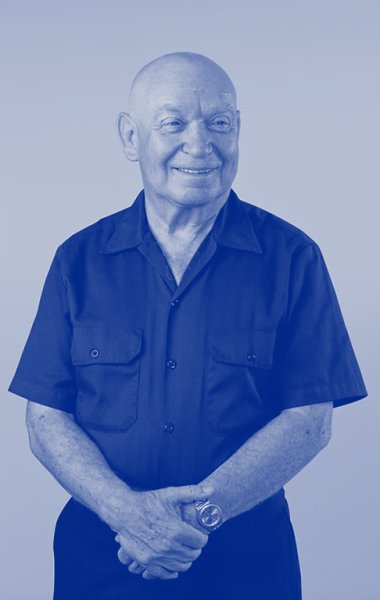
The 85-year-old Holocaust survivor spoke about life after liberation from the Nazis.
Every April, millions of people around the world honor and remember those lost in the genocide of the Holocaust. Each year, Cardozo uses the month of April to educate students on history by inviting guest speakers who are Holocaust survivors. This year, Sami Steigmann, a survivor, explained his journey and his story to students and staff.
Organized by English teacher and dean Ms. Eshaghian, 85-year-old Steigmann spoke with the Cardozo community in honor of Yom HaShoah. Yom HaShoah, translated to Day of the Holocaust, is a commemoration of the lives lost during World War II.
Steigmann explained, “The Holocaust must be taught forever and ever, because it is the best example that they can think of what hate can do to not only one person but to a group of people, to a nation, and to the world.”
He further explained that there is so much about the Holocaust the newer generations will never know about, saying, “We will never know the extent of what happened. The Holocaust is the most recorded crime in human history, however the Nazis and their collaborators destroyed a lab of the records.”
However, what is recorded is the mass unequal separation of Jews from society. “When you portrary a person or a group of people by the name of an animal you dehumanize them and it’s a license to hurt them,” he said. “They portrayed the jews as rats, because rats like jews are very small in number, they live all over the world, and they spread disease.” Steigmann also added that wars started with words, with bullying, people not reacting on time, so it escalated into further destruction.

Steigmann came to the United States in 1968 to meet his uncle who lived in Santa Barbara. He traveled without knowing any other language, however his teachers were always there to guide him.
“My teachers were the commercials, why? Because the proper pronunciations, you have pictures associated the words with the picture, and it’s repeated over and over, and by listening to the commercials, and not being afraid to talk, I learned English very fast,” he reflected, sharing how he adapted to a new country.
In 1973, he became a U.S. citizen, and in 2007, Steigmann was able to meet a fellow Holocaust survivor who had lived in the same camp as him. It was then that he began to feel apart of the group of Holocaust survivors.
However, 2008 was an important year for Steigmann. “I got my first assignment to speak to 6th graders,” he said. “I did not feel that I had a compelling story, but at that I knew more than 6th graders and by using the Nike slogan, just do it, so I decided to do it.”
Steigmann said that this speaking opportunity changed his life because of what the 6th graders did after. “They each sent me thank you letters, each better, but one 6th grader changed my life forever, she wrote PS: Your story was overwhelming, and I promise to pass your story onto my children,” he said.
The survivor said that this student’s message was a “revelation.”
“I realized that I have something very important that I must share to the next generation and because of her, my mission in life today is to educate the next generation,” Steigmann said. “It’s for you to become active learners from the past and make sure other tragedies will be avoided.”
Luck is one of the many factors Steigmann expressed has played an important role in his life. “One and a half million children were murdered, my life was saved, because I was extremely lucky.”
Steigmann ended the zoom meeting with an important message to the future generations, he explained how diligent we must be with up and coming media that is circulating the internet. He stated that the new generation must educate themselves in their passions to change others perspectives, because people cannot be changed, only their perspectives can be changed.
“Educate yourself on that subject you will be able to change other people’s perspective, and they will be able to change other people’s perspectives, and slowly, eventually, things will get better,” he said.
“It is your job to not only be knowledgeable but become active. Knowledge without action and without the media doesn’t do anything.The next generation, your job to make this world a better one, a more compassionate one, with less hate.”